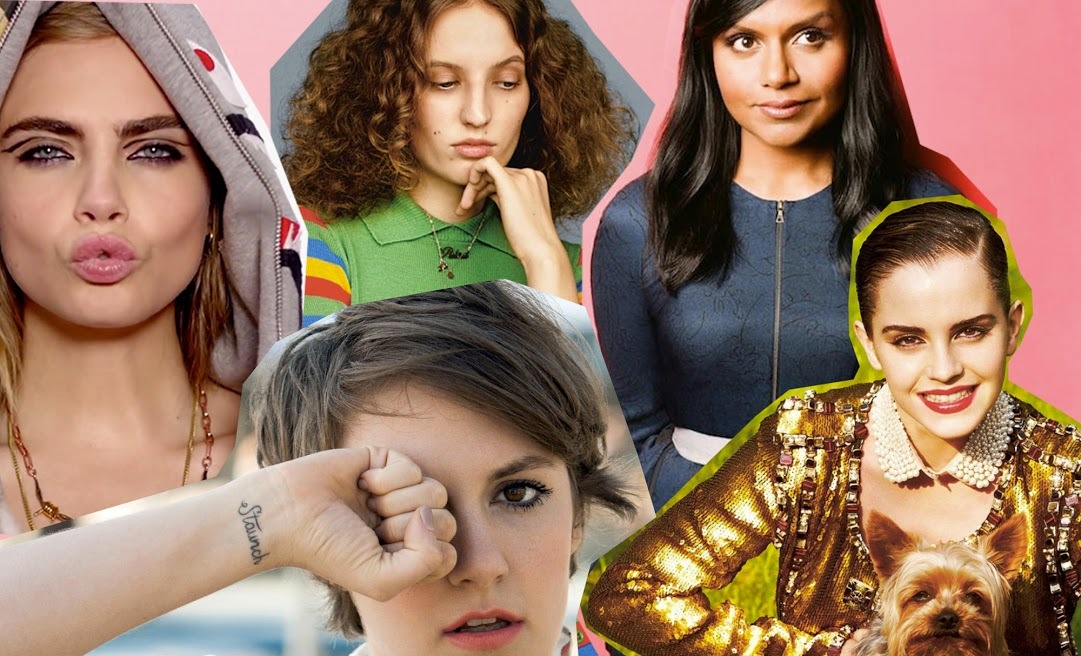It’s hard to see it clearly sometimes, but things are changing for the better. Feminism is easily perceived as a controversial buzzword, but the more we talk about gender equality—on the internet, our t-shirts, over dinner with our parents, with our partners and friends—the more it becomes apparent that a movement really is happening.
A woman presides over the largest economy in Europe. A woman is running for President of the United States. Women are at the helm of Facebook and Yahoo, two of the most influential tech companies in the world. Popstars and actresses now market themselves as feminists. Everywhere you look, the traditional bastions of male culture—politics, technology, education, and entertainment—are falling into the hands of smart, talented women. As we progress, we are educating ourselves about privilege, and the movement is at long last beginning to embrace intersectionality and transgender rights.
Yet as I make these sweeping statements, the optimism in me falters. Because reviewing these global achievements, Australians will feel out of the loop. While we read articles written by Tavi Gevinson and watch TV shows written by Lena Dunham, our own culture does not make heroes of young women. Instead, it cuts them down.
The young female media heroines that my friends and I worship on Twitter are overwhelmingly overseas products. In a recent conversation at work, when we tried to name an Australian version of Emma Watson, Mindy Kaling or Petra Collins, the only person who kind of fit the bill was ex-Neighbours star Caitlin Stasey. Caitlin plays a lead role in Josh Thomas’ Please Like Me, a millennial-centric show that has been compared to Girls. She is also a prominent feminist, and her website Herself might be the seen as the Australian Lenny Letter. When Herself launched last year its content and Caitlin’s feminist stance went viral. But it also earned her derision—especially for her involvement in the #freethenipple campaign.
While Caitlin become mainstream news for a moment, young Australians failed to lift her up to be an empowering female icon in the same way they’d done with international personalities. Inevitably, she has moved on to greener and more lucrative foreign pastures; she currently lives in LA and stars in an American TV show, Reign. You can’t blame her for focusing her efforts elsewhere, even Please Like Me, a superbly crafted comedy that touches on many uniquely Antipodean experiences, has found most of its success overseas.
This isn’t to say young women are entirely absent from Australia’s media landscape—nor are they failing to achieve great things. The issue, perhaps, is that we don’t pay them the right kinds of attention. Smart and charismatic social media heroes like Nakkiah Lui, Ollie Henderson and Tilly Lawless have found an audience, but not fame. Your mum probably doesn’t know who they are.
In discussions among female friends and colleagues, another woman who came close to the kind of profile we’ve discussed is writer Clementine Ford. She’s one of our most prominent young feminist voices, but is forced to spend as much time defending herself from internet trolls as she does promoting gender issues. Through no fault of her own, she has fallen far too easily into the love-to-hate category that we force upon our women writers and journalists.
At the centre of all this is a dangerously ingrained backlash culture. The internet makes matters worse, but there has always been an innate part of the Australian identity that makes us want to dismiss anyone who is doing well or appears to be proud of themselves. And while tall poppy syndrome affects everyone, it hurts women far more than men.
Of course, while we may struggle to name a local young female icon making the right kind of headlines, young male heroes are ubiquitous. Our national obsession with sport and love of a “larrikin” means they’re usually AFL stars with lucrative salaries and endorsement deals.
Logically, given Australia’s supposedly proud sporting tradition, women athletes should be as lauded as their male counterparts. Yet while we endlessly pick our female media figures apart, we erase our sportswomen by underpaying and underexposing them. The stars of Australia’s women’s cricket and soccer teams earn less than minimum wage and their games are rarely broadcast in primetime slots.
How can we expect Australian young women to aim for a position of prominence and status if they know they’ll never be adequately compensated or respected? Of course, the more glass ceilings we break and the more examples we set for the next generation, the easier and more possible it seems for women to enter male-dominated fields. But we have to make sure it’s worth while. Why spend your life chasing a public profile only to be to underpaid, trolled, or worse—ignored?
Reading back over this, it all feels so obvious—which is the most annoying part. Our media landscape has failed to catch up with the ideas and aspirations of Australia’s young, sophisticated, globally influenced women activists. Our media culture isn’t giving women what they want or deserve. It’s time to join the rest of the world and start embracing home grown feminist icons.
Credits
Text Katherine Gillespie
